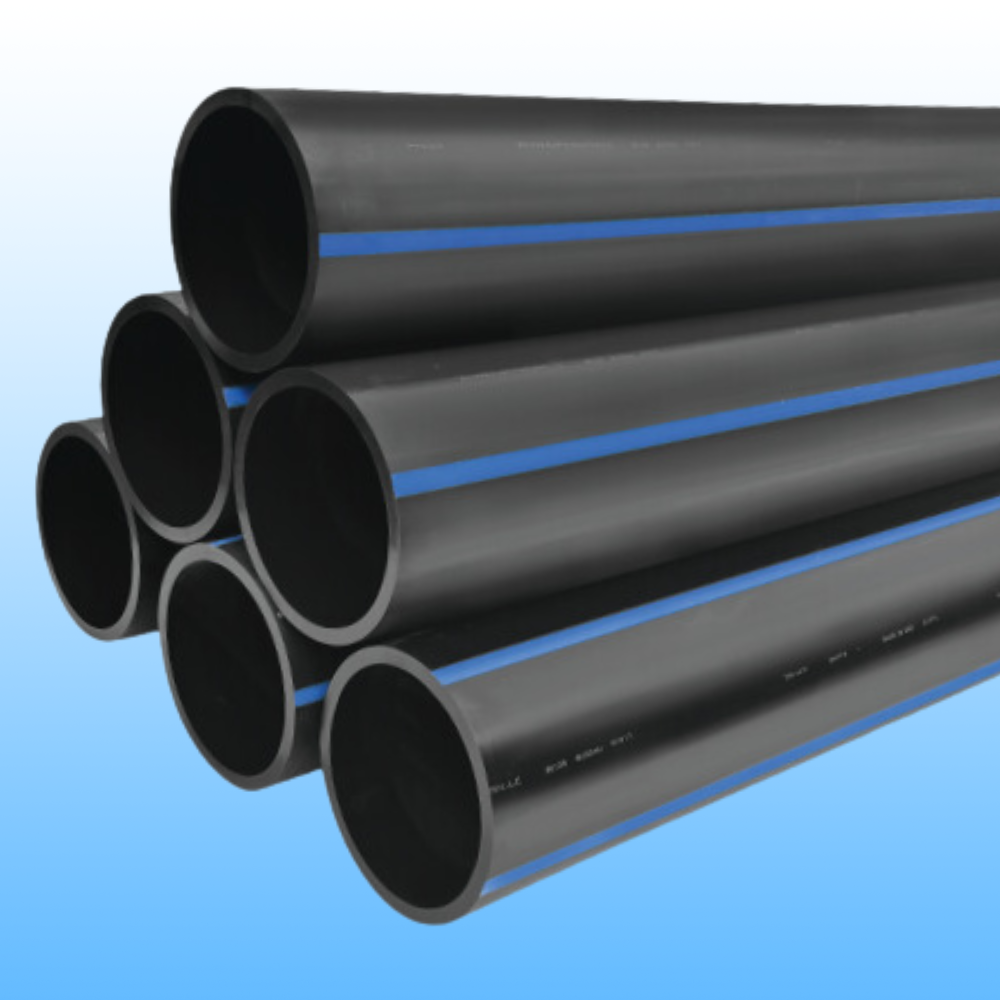Reasons Why hdpe pipe in stock Midland TX Is Essential for Local Industries
Recognizing the Trick Perks of HDPE Pipeline for Water and Wastewater Management
The use of HDPE pipe in water and wastewater monitoring presents various benefits that warrant consideration. Its phenomenal durability and long life-span make it a favored option for lots of tasks. Additionally, the product's resistance to corrosion and chemical damages boosts its integrity in various atmospheres. However, the benefits expand beyond just long life and resistance. Exploring its cost-effectiveness and ecological impact discloses a lot more engaging reasons for its widespread fostering in modern facilities
Outstanding Resilience and Long Life

HDPE pipeline stands out for its outstanding sturdiness and durability, making it a preferred option in water monitoring systems. Created from high-density polyethylene, these pipelines can withstand considerable pressure and tension, making sure trustworthy efficiency with time. Their robust nature permits them to withstand extreme environmental problems, consisting of temperature level variations and dirt activities, which can create various other products to fall short.
The life-span of HDPE pipelines frequently surpasses 50 years, offering a cost-efficient remedy for districts and sectors alike. In addition, the product's light-weight residential or commercial properties simplify installment, lowering labor expenses and durations. This longevity decreases the demand for regular repairs or substitutes, additionally enhancing its economic appeal.
In water monitoring applications, the reliability of HDPE pipes means less interruptions and enhanced solution connection, making them essential to sustainable framework growth. The combination of durability and long life solidifies HDPE's function as a cornerstone in efficient water administration solutions.

Resistance to Deterioration and Chemical Damages
While numerous materials give in to deterioration and chemical damages gradually, HDPE pipes exhibit remarkable resistance, making them perfect for various water management applications. This resilience comes from the molecular framework of high-density polyethylene, which is naturally non-reactive and does not rust like steels or break down from exposure to extreme chemicals. Therefore, HDPE is very efficient in environments with hostile compounds, such as wastewater systems that might consist of acids, bases, and organic solvents.
In addition, HDPE pipes can withstand ecological aspects such as soil level of acidity and saline problems, even more boosting their suitability for varied applications (American Plastics HDPE Pipe for Oilfield). Their ability to keep architectural integrity gradually lowers the risk of leakages and failings, which is critical in making sure the safety and dependability of water circulation and wastewater monitoring systems. As a result, the resistance to deterioration and chemical damages significantly adds to the general performance and longevity of HDPE piping remedies
Cost-Effectiveness and Economic Benefits
When thinking about the monetary ramifications of water monitoring systems, the cost-effectiveness of HDPE pipelines comes to be noticeable. These pipelines offer reduced installment and maintenance costs compared to traditional materials like steel or concrete. Their light-weight nature simplifies transportation and installment, resulting in reduced labor expenses. Additionally, HDPE pipes show a lengthy life-span, often going beyond half a century, which equates to fewer replacements and long-term savings.
Furthermore, the resistance of HDPE to corrosion and chemical damages decreases the requirement for expensive repair work and substitutes. The pipes also support effective water flow, reducing power expenses related to pumping systems. By mitigating leakages and water loss, HDPE pipes add to considerable economic advantages for communities and industries alike. On the whole, the preliminary investment in HDPE piping can generate significant monetary returns over the lifespan of the water management system, making it a prudent selection for lasting facilities development.
Ecological Sustainability and Minimized Impact

Convenience and Flexibility in Installment
As a result of their distinct residential properties, HDPE pipelines offer remarkable flexibility and adaptability in setup, making them ideal for a variety of applications. Their lightweight nature permits less complicated handling and transport, decreasing labor costs and installation time. HDPE pipelines can be curved and shaped to fit numerous surfaces and task demands, which is especially advantageous in pvc 3 way elbow challenging settings.
Additionally, their resistance to corrosion and chemical damages permits installment in diverse settings without the need for specialized safety finishes. The capability to fuse joints develops a continual, leak-free system, boosting the overall honesty and dependability of the installation. HDPE's versatility also fits ground movement, lowering the threat of damages in areas susceptible to changing dirt. Overall, these attributes make HDPE pipes not only flexible but additionally a preferred go to the website option for water and wastewater monitoring systems.
Regularly Asked Questions
Just How Does HDPE Pipe Compare to PVC in Water Administration Applications?
HDPE pipeline uses superior adaptability, resistance to deterioration, and longevity compared to PVC. Its lighter weight promotes less complicated setup, while its lengthy lifespan minimizes replacement expenses, making HDPE a favored choice in water monitoring applications.
What Is the Life-span of HDPE Piping Under Regular Problems?
Under common problems, HDPE pipelines can have a lifespan ranging from 50 to 100 years. Their resilience and resistance to corrosion add to their long-lasting efficiency in different applications, making them a trusted option for infrastructure.
Are HDPE Pipes Recyclable After Their Solution Life?
Yes, HDPE pipes are recyclable after their solution life. Midland TX HDPE Pipe Fittings in Stock. They can be refined and repurposed into brand-new products, substantially lowering environmental influence and advertising sustainability within the sector, making them a green selection for piping services
What Is the Setup Process for HDPE Pipes?
The setup procedure for HDPE pipelines includes website preparation, trenching, pipe fusion or mechanical joining, backfilling, and stress screening. Proper methods ensure a long lasting and effective system for transferring water and wastewater properly.
Can HDPE Pipeline Be Made Use Of for Both Potable and Non-Potable Water Solutions?
Yes, HDPE pipelines can be made use of for both potable and non-potable water systems. Their convenience, sturdiness, and resistance to deterioration make them appropriate for various applications, guaranteeing secure and reliable transport of water in different contexts.